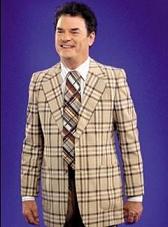In today’s post, Paul Jacobs dusts off those old rate cards and motivational cassettes to provide some serious insight into the challenges facing traditional radio sales staffs in a rapidly growing digital environment.
 A recent article in Inside Radio notes that as digital revenue grows, the number of digital-specific sales reps is shrinking. That’s right – we’ve got the spot sellers who are expert in Arbitron, CPM’s, PPM, and they’re the ones calling on media buyers at a time when radio revenue is expected to be flat.
A recent article in Inside Radio notes that as digital revenue grows, the number of digital-specific sales reps is shrinking. That’s right – we’ve got the spot sellers who are expert in Arbitron, CPM’s, PPM, and they’re the ones calling on media buyers at a time when radio revenue is expected to be flat.
In the article, Gordon Borrell quotes a study that demonstrates that digital-only AE’s brought in 2.5 times as much online revenue as those using a blended sales approach. According to Borrell, “If you have people dedicated to selling digital, you’re going to make more money.”
Am I missing something here?
So let’s make the case for why radio needs digital-only salespeople:
- Metrics Expertise – What does the average account executive know about “uniques,” “page views,” and “session length?”
- Different Decision-Makers – In most agencies, digital decision-making takes place in a completely different part of the building than the media buyers’ offices. And in most cases, the average AE doesn’t know these people (oftentimes because the media buyer won’t let them get deeper into the agency).
- Market Coverage – We’ve written about this before, but the average radio station has between 75-100 unique advertisers on the air in any given week. But concurrently, there are literally thousands of businesses spending money on digital channels who never get called on because they don’t have a “radio budget.” This hampers radio’s ability to broaden out its advertiser base.
- Industry Expertise – Radio sellers are extremely knowledgeable about . . . . radio. They can talk about the competition, air personalities, promotions, remotes, etc. But what is the depth of their expertise in mobile or social media? How many can sit down with a major client who knows their stuff and hold their own in a digital give-and-take?
- Competition – As I’m writing this, Pandora, Groupon, and Living Social are hiring thousands of local salespeople – many of them with a background in radio, by the way. They are gearing up to blanket local markets with sellers who will be working Main Street and the Yellow Pages, attempting to scale up their businesses. The average radio station has maybe a staff of eight sellers who also have to sell :60s and :30s. Who’s going to pound the digital pavement?
 Too many radio stations are structured like a Border’s book store at a time when consumers are using Kindles. They have an infrastructure of staff, facility, and inventory that needs to be managed, utilized, and fed. But the market is moving away from that brick-and-mortar approach.
Too many radio stations are structured like a Border’s book store at a time when consumers are using Kindles. They have an infrastructure of staff, facility, and inventory that needs to be managed, utilized, and fed. But the market is moving away from that brick-and-mortar approach.
By utilizing traditional sellers, radio will be hard-pressed to morph effectively into viable digital media outlets that generate serious revenue. Stations and clusters need to go all-in, create new digital business models, and leave the radio selling up to the AE’s, while growing digital revenue by acting and staffing like a new media company that has desirable content.
Fishing for lobster is different than fishing for bass. Different skills. Different mindset. Different tools. Different fishermen.
Tell me I’m wrong.
- For Radio, Will It Be Christmas In April (And Hopefully, May)? - April 21, 2025
- The Revolution Will Not Be Monetized - December 30, 2024
- What Kind Of Team Do You Want To Be? - October 4, 2024




We are working with many dotcom’s in today’s market. They are selling digital solutions. Your comments are spot on regarding fishing and how there must be a mind-shift in dealing with customers. Fred, the interesting thing is we are having great success in hiring former “radio salespeople”. They may not have the digital knowledge, however, the successful sellers have good disciplines, and interpersonal skills and they understand how to make the calls. In my opinion it is not the personnel that radio needs to change but how they are trained and where they are focused. Take the “net” away from them and teach them with the “fly rod”.
Makes sense. It’s not that radio salespeople don’t have the abilities – it’s a matter of training and specialization. Thanks for the comment, “Coach Paul,” and for reading our blog.
Thanks for the comment, Paul. Radio salespeople generally have terrific skills. Let’s face it, they’re selling “air” instead of a tangible product. But one thing we should have learned from the challenges the industry faced after duopoly and then consolidation is that the more things they have to sell, the less effective they tend to be. This isn’t the time to cut corners. Radio is facing significant sales challenges from pureplays. The best solution is to let the radio sellers focus on the “mothership,” while looking at digital as a separate business with terrific growth potential.
All of Paul’s points are valid, its just that this sales force would have nothing of much value to sell. Digital only sellers are the equivalent of an FM only sales force in 1960. The industry knew that FM was a big part of radio’s future, but there wasn’t much audience yet. What would this sales force sell? Banner ads on websites? Insertions in terrestrial streams?
Radio has many issues surrounding digital that it should address before applying scarce sales resources to products that currently don’t deliver enough critical mass to command significant revenue. The big one is royalties – they are currently too high to allow streaming to be profitable – just look to Pandora for verification of that.
The folks charged with radio’s digital assets should take a look at one of those places that cache old websites, view some of the radio station sites from ten years ago and do some soul searching. Not only haven’t they changed much, but if you look hard enough I’ll bet you could find some of the same pictures.
There are many really good digital applications for stations to market themselves and keep connected to their audience – they are under/badly utilized and radio routinely misses opportunities at those places on a grand scale. IMO, radio doesn’t offer enough digital critical mass now to monetize a separate sales force. You have to build an arena and put some events there before you can expect to sell tickets.
You’re right about digital streaming costs as well as low CPM’s. But digital is so much more than streaming and banner ads (the old radio model). There are numerous opportunities to generate revenue in mobile, digital coupons, and social media. I agree that the numbers are small, but we must remember that radio revenue isn’t growing – in order for our industry to grow, we need to create new solutions for advertiser’s needs. They are telling us by their actions that they don’t “need” :60s and :30s as much as they used to. They are looking for other avenues to reach consumers. So, do we continue to plod along, or do we take the plunge? I’m plunging.
Fred – Paul,
Great topic and a variation of this is being covered in digital media as well. Business Insider says “The Traditional Media Buying Agency is Dead”.
https://www.businessinsider.com/the-traditional-media-buying-agency-is-dead-2012-1
As self-serving as this article is…they ask the question – “Does the creative agency have what it takes to regain the client relationship and put digital at the center to drive all media touch points?”
Everyone is undecided on digital except those making their bones using digital to take apart traditional media. Did you see the other headline today? US Online Advertising Spending to Surpass Print in 2012!
The answer for traditional media is not either/or but will always be whatever tool it takes to best serve the customer. If you follow the money then you’ll know what weapon you’ll need to defend! Traditional media can defend itself from digital attacks or die a slow death from a thousand digital wounds.
Keep up the great work guys.
Mike, as always, thanks for the insight. From Watergate to digital advertising, “follow the money” is great advice. Thanks for being a part of the conversation.